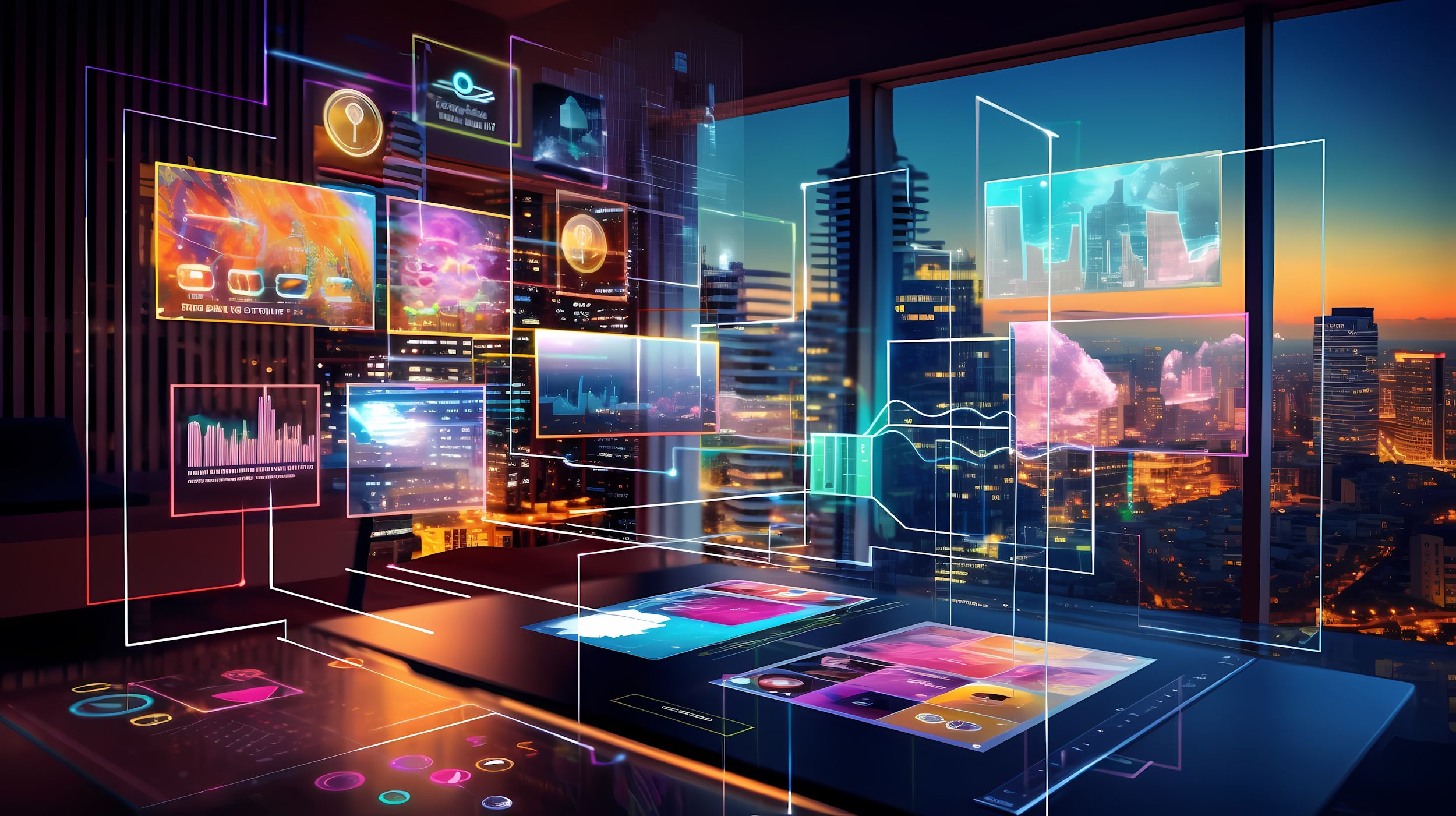Major events in history tend to stick in our memory. We can often go back and remember what we did or where we were when for example (from a Swedish perspective) when Olof Palme was assassinated or when the passenger ship Estonia sank on a stormy autumn night in year 1994. Maybe we will also remember our first contact with AI and ChatGPT. I remember the day very clearly when a colleague showed me the AI chat prompt and how Chat GPT developed text on how to succeed with innovation. I was amazed and struck by its endless possibilities. Since this day in early 2023, the interest and technology of AI has exploded, and engaged international communities (for example European Union) on how to control and manage AI – for the best of citizens.
The concept of AI goes back a couple of decades. I remember the first discussions of AI in the mid 1990’s and how it would revolutionize the world. AI was for example portrait viciously in movies (such as The Terminator) where self-thinking machines would take over the world. But, with more powerful machines (based on Moore’s law) the vision of AI is currently being realized. Today (2023), it is said that AI has the same cognitive and language abilities as a 10-year-old but in a few years, AI is expected to do work of knowledge workers – or even units and organizations. A newspaper article (Dagens Nyheter 2021) estimated that 40% of the workforce would be replaced by AI by 2040. What happens when the business model (revenue stream) that is dependent on knowledge workers doing customer work is replaced by AI? We need to reform as well!
What we need to understand is that AI is a set of different technologies with various uses and potential. Robotic Process Automation is, for example, viewed as an AI technology and has been around for many years with purpose to automate repeatable administrative tasks. Other more advanced areas for AI are Neural Networks (NN), Natural Language Processing (NLP), and Analysis of Big Data and Expert systems. So, when we say that business and organizations will be revolutionized by AI, we need to understand that different business units have different pre-requisites and AI technology focus. A finance department will be transformed by Analysis of Big Data and Robotic Process Automation, while a marketing department will use Natural Language Processing. In the end, it is about what we want to achieve, understanding the nature of the different business areas, and how AI can support.
In the mid-1990, the business world went through a similar digital revolution with the introduction of internet. It is often said (based on research by McKinsey) that over 50% of the Fortune 500 companies where unable to adjust and compete in the new digital business environment – and disappeared. What we can learn from this era is that new digital technology should not be seen as just new technology but an opportunity to re-think the business models and ways to improve effectiveness and competitiveness. I remember the Swedish furniture chain IKEA being late to open an online store in the 1990’s but when they started to go online the whole operating model, supply chain and logistics was aligned with the new business opportunity. It was a huge success! They designed a new way of working based on a future vision of digital – and not (like many others) adding digital technology to existing business models. I think we need to view AI in the same way. It allows us to re-imagine our business models and how we will compete in the future. What are customers willing to pay for and not? Not just adding AI randomly to our organizations as the “new shining thing.”
Many knowledge workers will with all certainty be replaced by AI machines. These are employees that do search, document, and analysis work that fall into the sweet spot of AI machines. The questions knowledge workers (and their managers) will ask is how to protect themselves from the AI revolution. How do I remain relevant in the future era of AI? There are few relevant criteria that all knowledge workers should pursue:
- Human interactions
- Adaptivity
- Value delivery
- Mindset
- Continuous awareness
We see that knowledge workers excelling in these mindsets and behaviors are more likely to be in demand in the future than those without. Our challenge to remain relevant in the future starts today!
My point of view when it comes to AI (in December 2023) is that it is going to revolutionize the business world. My estimate is that 50% of all large companies (including Fortune 500) and workforce will disappear due to the AI digital disruption. It is harsh reality but there are ways to protect ourselves and remain relevant and competitive. I believe that businesses need to expand their perspective of AI to include the complete company, ecosystem, and market – and not only technological possibilities. Those who can integrate AI into their business model, governance structure and innovation capabilities are able to deliver new products and services faster, more effectively, and more accurately that ever before. What we need to understand is that customer behavior will also completely change with AI. It will influence how products and services are acquired and consumed – and very data driven. The customer’s expectation is to get all services and products delivered at once according to their needs, situation, and location. In the end, it is the market and customer that decide if the new business model is successful or not.
My recommendation:
- Discuss at executive leadership level what the new AI technology means for us and how we can remain relevant going forward. Develop different scenarios and how your business is impacted by these.
- Learn from others! How are other companies dealing with AI and its business opportunities and threats?
- Do not see AI as a new shining technology but rather a way to re-imagine your business model.
Currently, we do not know where AI will take us and its real impact on businesses and organizations. It is very unpredictable, but unpredictability is exactly what we need to be prepared for. We can assume that AI revolution with happen incrementally with frequent business disruptions that will challenge businesses and turn few businesses out of business in each iteration. We need to prepare for the unpredictable and learn how to respond quickly to each disruption – and continuously learn and adjust. That is what the real digital/agile transformation companies and organizations need to be doing. Embrace the change – all other approaches will crash and burn.
Tag/s:Artificial IntelligenceBusiness TransformationDigital DisruptionFuture of Work






Great article Hans. Using the benchmark of the internet revolution to suggest that 50% of large companies will soon disappear due to AI is sobering. It is the class example of both a threat and an opportunity.
I like this perspective, especially the acknowledgement that our perspective about AI should be, ” It allows us to re-imagine our business models and how we will compete in the future. What are customers willing to pay for and not? Not just adding AI randomly to our organizations as the “new shining thing.” Also agree that taking a hard look at how we should be reskilling our people in readiness for the now (not the future) AI is key!
I find it concerning when business thought leaders speak of 50% destruction of employers and jobs but don’t follow on to speak about the impact of all of those missing paychecks on humans’ consumption of the goods and services that are the only reason the remaining organizations will continue to exist.
Addressing those impacts retroactively will result, I fear, in disruptions far beyond the sphere of business strategy and operations.
I think, for example, of entire communities across the globe where paychecks depend almost exclusively on providing contact center services or providing the goods and services those workers and their families require.
The investments needed to retrain or otherwise prepare those populations must be in place long before the desks are cleared and empty buildings are locked up